The Cream Legbar is an amazing English heritage breed with a wild spiky feather crest. The hens lay sky-blue to light-green eggs.
The eggs of the Legbar are famous for their pastel colors. Hens lay about five eggs per week, which is plentiful supply of fresh eggs daily.
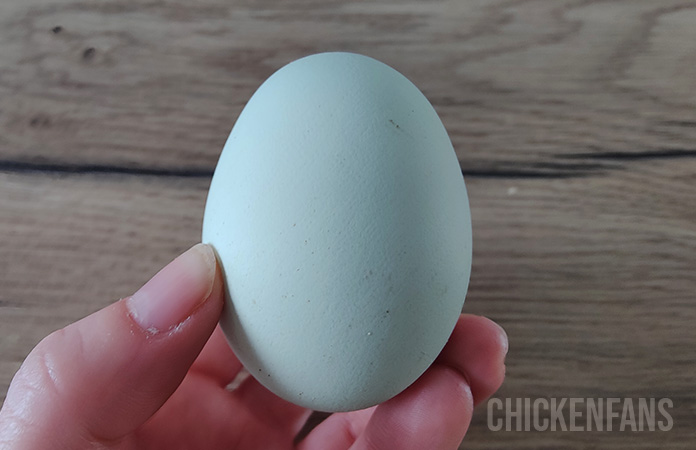
Oftentimes people say the Cream Legbar lays blue eggs, but the true color usually lies between light blue and light green.
Just don’t expect deep blue or olive green eggs; you will be disappointed. Go for an Araucana if you’re looking for deeper blue eggs.
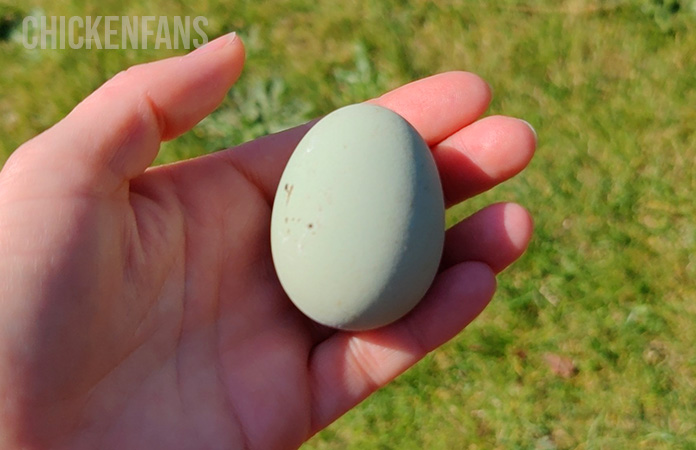
Each Cream Legbar we’ve had laid eggs in unique colors, varying from one chicken to another.
Cream Legbars have an iconic look, with a triangular body, and an upright tail. They have feathers that stick out from behind their combs, leading to their nickname Crested Cream Legbar.
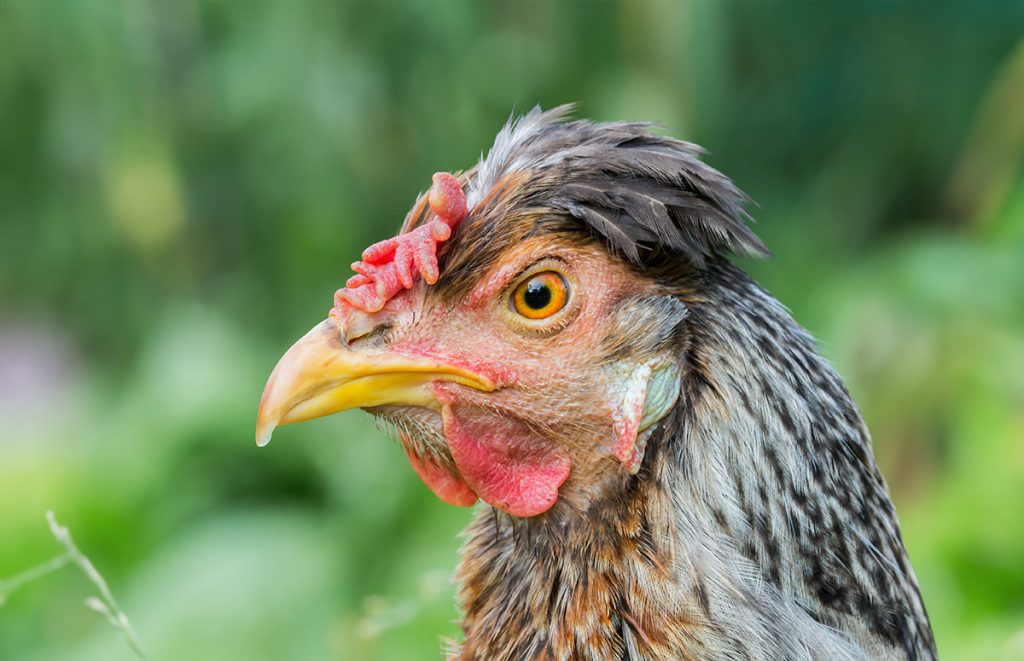
Legbars have clean yellow legs, a yellow beak, and a single red comb that can be quite floppy at times.
Most creamies tend to be friendly and easygoing. They are comfortable around humans and can be handled with ease.
They are also fine when kept in confinement; however, they love to roam and free-range.
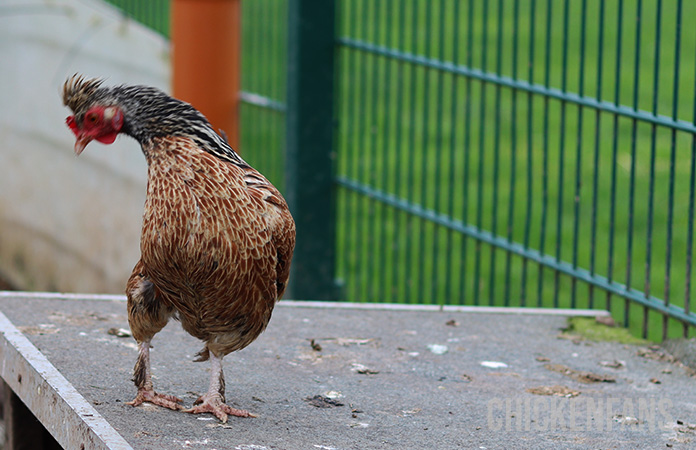
Legbars are curious by nature and pay more attention to their environment than other breeds do.
Legbars are very hardy chickens and can tolerate most hot and cold climates.
On top of that, they are highly resistant to disease and illness, making them an ideal choice for many backyard flocks.
The Legbar comes in three colors: gold, silver, and cream, but only the cream variant has a crest on its head and lays eggs in a range of pastel colors, including blue and green.
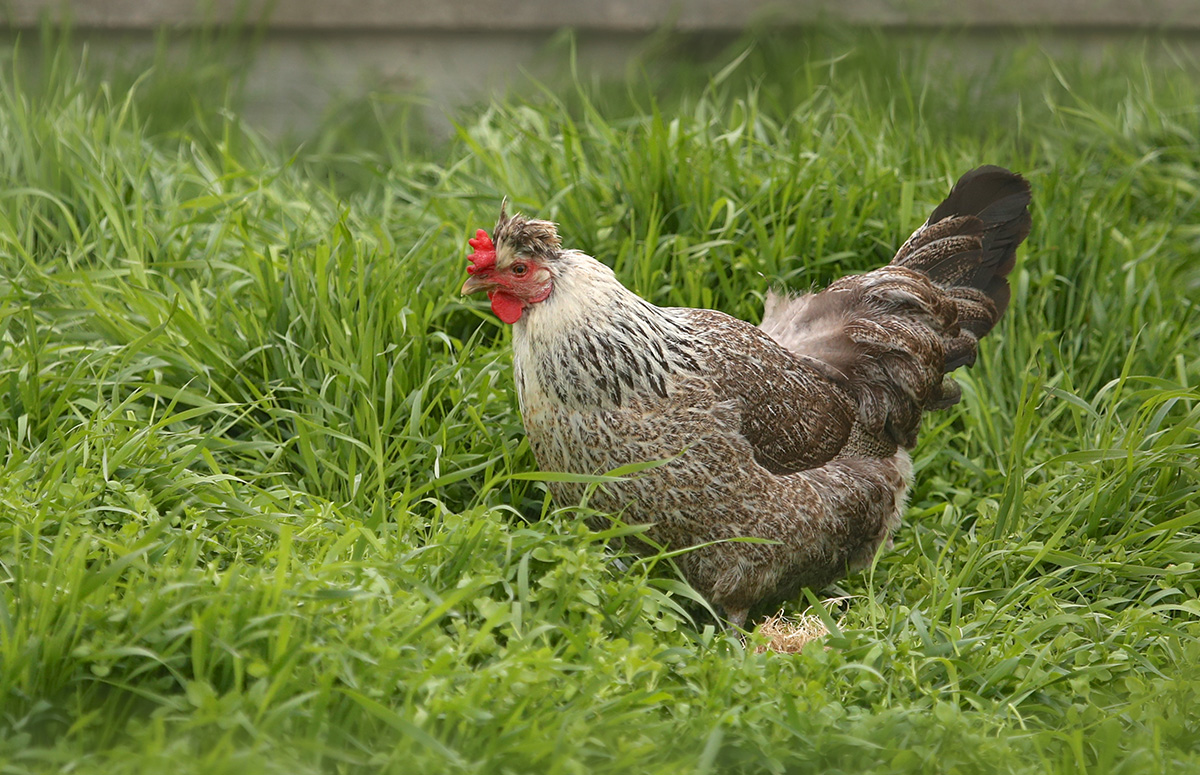
Some standards like the Poultry Club of Great Britain see the Cream color as a variety of the Legbar. Others, like the Rare Breed Survival Trust classify it as a separate breed.
Cream Legbars are auto-sexing: you can immediately see the sex of a chick by looking at its down.
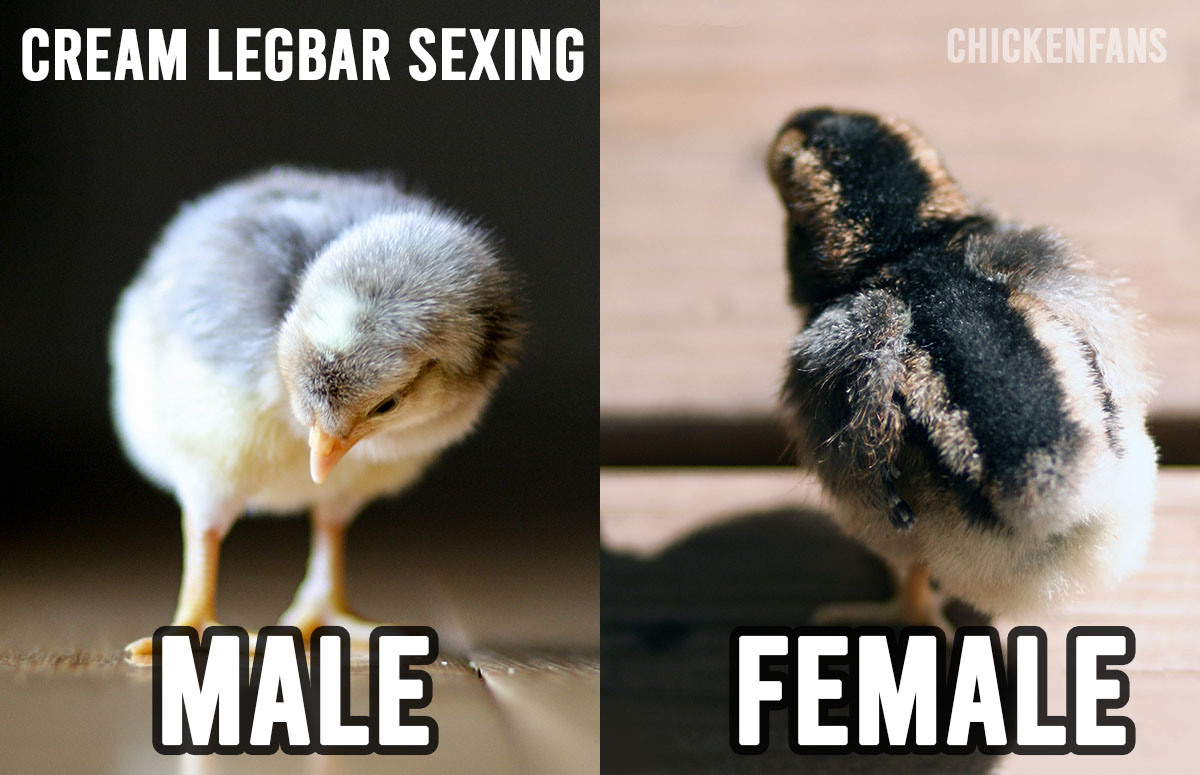
Female chicks have clear, dark brown chipmunk stripes on their back. Males are lighter, have blurry stripes and a white spot on their head.
Occasionally, you’ll see chicks missing the chipmunk look altogether, or some girls with a subtle white spot.

If you’re in doubt, give it a few weeks and you’ll start to see the signs more clearly.
The Legbar has its roots in Britain and was developed in the early 1900s at the Genetical Institute of Cambridge University.
The Gold and Silver Legbar were created by crossing Plymouth Rocks with brown Leghorns, the best layers at the time.
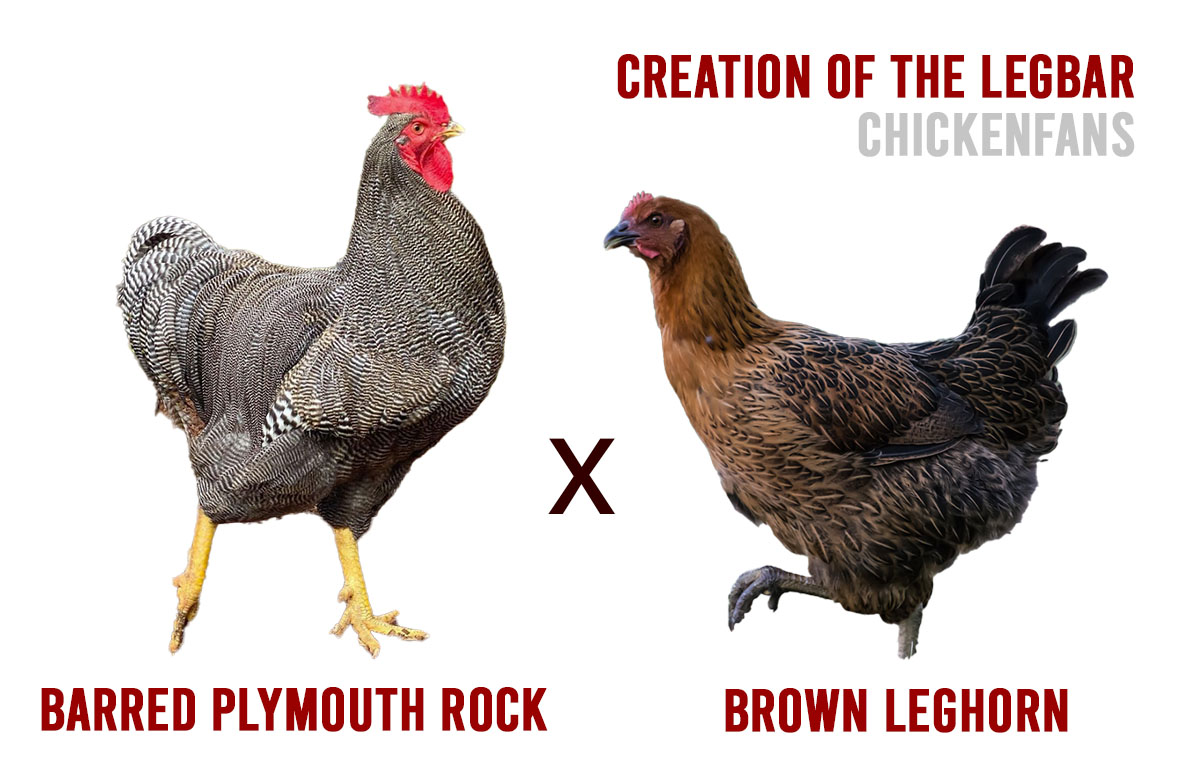
The resulting chicks had a brown down and a barring gene (B), so you can see the gender right after they hatch.
The cream color wasn’t part of the plan.
When Michael Pease tried to improve the Gold Legbar by adding white Leghorns to the mix, the plumage color shifted to cream.
These first-gen Cream Legbars laid white eggs and didn’t have crests at all.
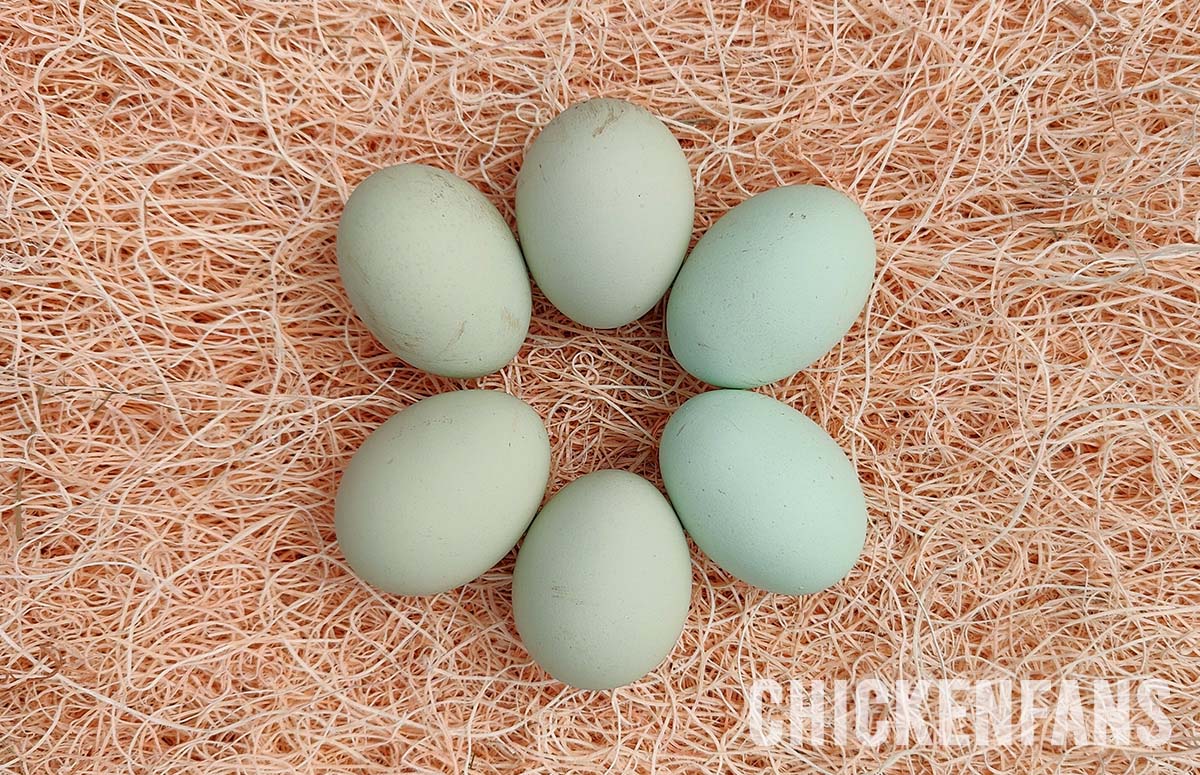
It took a mix-in with Araucanas to get the now-signature blue and pastel-colored eggs.
If you’re looking for chickens that lay colored eggs, here are some popular Legbar alternatives:























